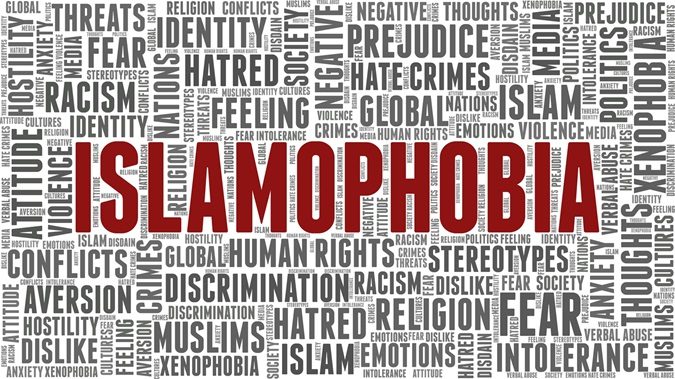In this country, obedience is not enough. The Muslim in India today is not just told to survive — he’s told to smile while doing it, apologize while being attacked, thank the state for not killing him faster.
A boy in Jharkhand is lynched for carrying beef — and the Prime Minister delays condemnation until the market reaction settles. When he finally speaks, he says “it hurts me” — as if pain is the issue, not policy. A woman in Delhi is shot in the face during the 2020 pogroms. Her brother survives with bullets in his leg. The police arrest him — not the shooter. In court, he is asked: “Why were you out during riots? Are you part of any organization?”
What’s the question behind these questions? Are you loyal enough? “Loyalty,” here, means unconditional submission. A kind of emotional hostage-taking. You’re being asked to perform a role — one that exists only to reassure the dominant majority of its own superiority.
Nation as Abuser, the Muslim as Exhibit
Since Partition, Indian Muslims have been placed in a double-bind: permanently Indian, and permanently suspect. The Hindu Right — which spent decades idolizing Savarkar, who openly admired Hitler’s treatment of Jews — has slowly turned this suspicion into a full-blown political strategy. In 2002, Narendra Modi oversaw the Gujarat riots and untold atrocities on Muslims. He was later promoted to national leadership. In 2020, bulldozers became a tool of statecraft in BJP-ruled states — used to demolish Muslim homes without trial, after communal clashes where the victims were often Muslims themselves. It is no longer about law. It is about display — like a warning nailed to a door.
The media, meanwhile, does the ideological work. Every night, Muslim names trend on TV with words like “terrorist,” “jihadi,” “infiltrator.” Even actors like Shah Rukh Khan — whose patriotism is undeniable, whose silence is strategic — are not spared. His son was arrested and paraded without bail over a non-existent drug charge. Not because the state feared his son — but because it wanted to send a message: You will never be safe, no matter how big you are.
False Consciousness: Survival as Spectacle
In this atmosphere, some Muslims — especially from upwardly mobile urban backgrounds — respond not with protest, but with performance. They say things like:
“We must show we’re not like them.”
“Let’s hoist the flag to prove we’re as Indian as anyone.”
“Kashmir? We don’t get involved in that.”
“We should thank India. At least we’re not Pakistan.”
What’s going on here is the internalization of a caste-like position — a belief that dignity must be earned through service, rather than claimed through rights. It is strategic — but also tragic. A 26-year-old Muslim army officer dies at the border. His family is proud, but knows not to grieve politically. They keep their heads down. “He died for the country,” they say. But the same neighborhood that clapped at the funeral won’t rent to another Muslim. This is appeasement — and even then, it is never enough, because you are always one hashtag away from being labeled anti-national.
Turning Inward: Hatred for the Unafraid
Perhaps the most painful symptom of internalized oppression is when the oppressed become enforcers of performance. A Dalit man burns a copy of the Manusmriti — and a middle-class Muslim condemns him: “Why so extreme? Aren’t there peaceful ways?” Kashmiri students chant slogans in a private room — and a Muslim influencer posts a tweet: “This is not what Islam teaches.” When Palestinians fight for survival, or when a woman in Hijab stands outside a college defying Hindutva gangs, these same “loyal Muslims” are often the first to say: “They make us look bad.” Why? Because freedom scares them. It’s easier to punch down — to blame Shaheen Bagh protestors for “dividing the nation” — than to ask: Why do we still need to beg for our place in it?
It’s easier to claim distance than to accept responsibility. And when the reckoning comes, you will realize: the people you rejected were never your enemy. They were just less afraid than you.
Cracks in the Mask: The Coming Shift
But this performance cannot go on indefinitely. Because pain leaks through. A 14-year-old boy in UP is slapped in class for not saying “Jai Shri Ram” — and the video circulates. The boy says nothing. But his face says everything. At some point, the children of those who bowed will ask: Why did you keep bowing? The next time a bulldozer comes, there will be no apology. The next time a boy is lynched, his family might ask, “Why should we prove anything at all?” This isn’t radicalism. It’s grief refusing to be manipulated.
No More Silence, No More Shows
The Muslim in India is not just a demographic. He is the scapegoat for every failing of the state: from unemployment to cultural anxiety, from political incompetence to historical resentment. But they are also the artisan, the hawker, the student, the poet, the freedom fighter, or the teacher giving labour. No amount of propaganda can erase that. The time for proving love to people who hate us is over. This is not about separation. This is about self-respect. If the system cannot protect us, then we owe it nothing. We don’t need to prove loyalty. We need to demand justice — on our terms. Those who burn our homes do not speak for India. We — who still remain, still work, still live — are not going anywhere.



